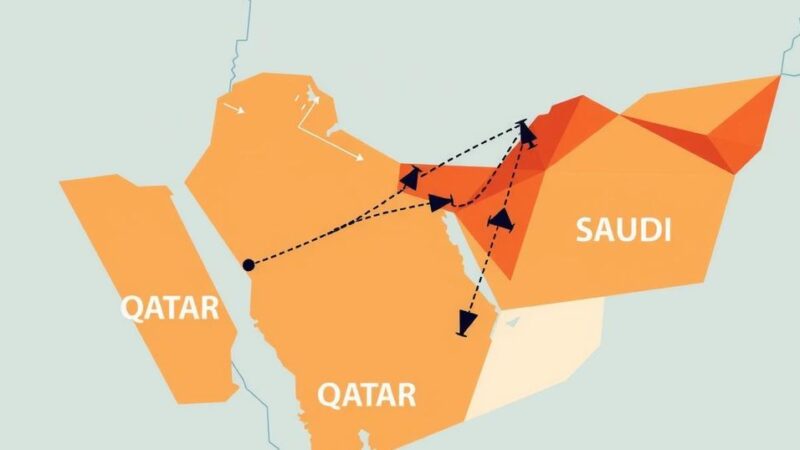Sacked Syrian workers are staging nationwide protests against government layoffs targeting the public sector. Ahlam Hassanien, a former employee, represents the struggles of many who have lost their income and livelihoods. The new government’s push for privatization and claims of public sector efficiency are stirring significant unrest among displaced workers and their communities, with up to 250,000 affected individuals mobilizing for change.
In Syria, workers dismissed from their government jobs are organizing nationwide protests, primarily in response to a new policy shift by the government targeting the public sector. Ahlam Hassanien, a former state employee at Syrian Telecom, expressed her distress after losing her job, which was crucial for supporting her family and pursuing her law studies. She lamented that the governmental decisions have left her without compensation, struggling to meet daily expenses exacerbated by the current economic situation.
Hassanien’s situation reflects a broader pattern, with thousands of government employees being dismissed since the takeover by the new authorities following the ousting of President Bashar al-Assad’s regime. Many individuals, including those with family connections to the military, have lost their positions without clear reasons. The reforming government aims to transition the country towards a competitive free-market economy while reducing state involvement, amidst heavy criticisms of prior public sector mismanagement.
Economically, Syria grapples with severe issues, ranking poorly on the Corruption Perceptions Index. The new government, led by President Ahmad al-Sharaa, announced plans to privatize numerous state-owned industries and assured that only essential public services would remain under government control. Reports indicate that approximately 400,000 government jobs are reportedly ghost positions, raising concerns about the efficiency and necessity of state employment.
Sacked employees have united to voice their grievances, leveraging social media to organize and express their opposition to the government’s privatization policies. The group Democratic Change Workers (DCW) has emerged with demands including the reinstatement of fired employees and salary increases. Their statements underscore the vital role of the public sector in providing essential services and support to the impoverished population.
The humanitarian crisis is dire, with 90% of Syrians living in poverty and reliance on humanitarian aid having surged since the conflict began. Criticism of the government’s privatization initiatives has come from various quarters, including reflections from economists on the historical integrity of state-owned enterprises as crucial national assets. Critics assert that corruption in the government is a mismanagement issue rather than a fundamental flaw of the public sector.
Currently, protests are ongoing across the country, as various sectors, including healthcare workers and firefighters, demand accountability and clarity regarding their dismissals. The DCW has reported that approximately 250,000 workers have been terminated or placed on extended unpaid leave, which goes against existing labor laws. The Syrian government has yet to respond formally to inquiries regarding these mass terminations and potential compensations.
The recent dismissals of government workers in Syria have sparked widespread protests as affected individuals seek reinstatement and accountability from the current administration. Amidst ambitious economic reforms promised by the new government, many fear increased poverty caused by potential privatization and austerity measures. The situation remains uncertain, as the legality of mass layoffs is questioned, and ongoing protests may influence the government’s approach to labor rights and public services.
Original Source: www.middleeasteye.net






